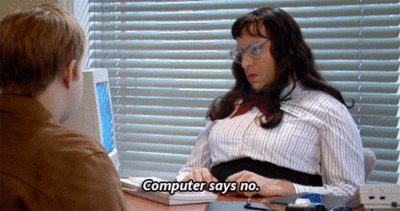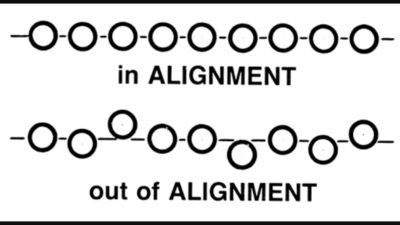Pressing ‘ pause….. ‘
I think I can, I think I can, said the little red engine that could. We are increasingly encouraged to “climb every mountain,” but this can get really exhausting, and even a rocky mountain goat needs a rest from time to time.
Time to recuperate, recover, reset or rest our body and thoughts.
Time to breath in, and out, and in, and out, and in.
Time to get off the roller coaster or merry go round, and round, and round.
To quiet the mind and be mindful, rather than having a mind full of chaos.
Being busy has become a badge of honour, that in many people is deteriorating all the building blocks of mental and physical health and wellbeing. Add to this our ‘always-on’ digital and social lives that has become the new norm. Most adults and children are like Augustus Gloop in Willy Wonka’s Chocolate Factory. The only difference is the impact is less visible.
Our minds are becoming less and less mindful and more distracted and even overwhelmed . This is likely the new norm, yet there is significant research illustrating negative repercussions of such obsession and there is high correlation between social media use and negative mental health and wellbeing (More here). There are many benefits to the transformation digital world, yet self control is critical, and as in most other behaviours from unhealthy eating to alcohol consumption, gambling and smoking most humans are not generally able to self-regulate their compulsions.
Work increasingly does not end on leaving the office, as VPN, remote access and mobile access to email and the network invades what was once downtime, to recover. Who doesn’t love an email from the boss at 9:30pm that simply creates stress and could have waited until the morning? Who’s to blame, the person sending or checking? This has evolved beyond work-life balance, towards a critical health and well-being argument that is typically less about work and more about life choices, discipline and self-control.
Our digital worlds create distractions away from what’s important and enjoying the moment, and having negative repercussions such as impacting our sleep patterns. Poor sleep, impacts on days, our world and personal lives. We risk losing social interaction with family and friends as we are just too tired. Caffeine to start the day and wine at the end to relax.
This just disrupts us entering vital REM sleep.
Sleep deprivation is an epidemic.
“Midnight is no longer ‘mid night’. For many of us, midnight is usually the time when we consider checking our email one last time — and we know what often happens in the protracted thereafter. Compounding the problem, we do not then sleep any longer into the morning hours to accommodate these later sleep-onset times. We cannot. Our circadian biology, and the insatiable early-morning demands of a post-industrial way of life, denies us the sleep we vitally need.
That low level exhaustion becomes their accepted norm, or baseline. Individuals fail to recognise how their perennial state of sleep deficiency has come to compromise their mental aptitude and physical vitality, including the slow accumulation of ill health. A link between the former and the latter is rarely made in their mind.” From ‘Why We Sleep’by the neuroscientist Dr Matthew Walker, reviewed / summarised here
Our employers (and ourselves) have responsibility not simply for work-life balance, but at the very least, to allow teams to adequately pause and recuperate for a more productive, content and creative tomorrow. There is increasing pressure for teams to innovate, disrupt and think different, but this is very hard when they are half asleep, overwhelmed and distracted.
Technology is starting to intervene, as entrepreneurs leverage the obvious — that humans lack self-control and need the tools beyond being educated as to what they know as obvious, yet subconsciously or irrationally ignore. Apps such as Calm have made meditation simple, and making pausing daily to take notice and mindfully meditate simple. Calm has successfully monetised and grown to a valuation of more than $250 Million US with very little cash injection, named Apple’s app of the year last year and ranked 50th among top grossing iOS apps (More).
Mindfulness is the new growth sector online and off.
Apps such as Zen Screen and Self Control have made it easy to build a bit of discipline into digital usage. ‘Do Not Disturb’ and increased ability to monitor usage on smarts phones is giving us more tools to understand that we may have a problem, and need help. The first step in changing any compulsive behaviour for the good is contemplation that “perhaps I have a problem and should change, and I can’t do it alone.”
Sleep is similarly being positively disrupted by technology. Smart phones not just having an alarm to awake in the morning, but time to go to bed, and reminders to do so to get a good night sleep — “It’s time to go to bed!” Wearables such as Fitbit and the Oura Ring are focused as much, if not more, on innovating for being asleep than being active.
Yet, ultimately, it comes back to an increased emphasis across our community on what matters for our health and wellbeing, including our mental wellbeing. This is becoming an increasing focus of government and social educators, as solid evidence illustrates a growing need for such intervention. Anxiety, depression and suicide rates are steadily increasing, and reports of people feeling rushed, exhausted and struggling to live a productive life are also growing. People are increasingly struggling.
Five Ways to Mental Wellbeing is an evidence based health promotions campaign originating from the UK, and now successfully adopted and adjusted for New Zealand and Australia. Refer to the full research report ‘Five Ways to Wellbeing” produced by the Centre for Well-being, nef (the new economics foundation) on behalf of the UK Goverment, pulling from global research and evidence. A summary of the ‘Five Ways’ and some of the key underpinning insights follow.
The five ways to mental wellbeing are defined as follows …
Connect… “With the people around you. With family, friends, colleagues and neighbours. At home, work, school or in your local community. Think of these as the cornerstones of your life and invest time in developing them. Building these connections will support and enrich you every day.”
“A recent study using data from the German Socio-Economic Panel Survey showed that life goals associated with a commitment to family, friends, social and political involvement promoted life satisfaction.18 In contrast, life goals associated with career success and material gains were detrimental to life satisfaction.19 In light of these findings, the effect could be mediated by stronger social relationships in the former group.”
Be active… “Go for a walk or run. Step outside. Cycle. Play a game. Garden. Dance. Exercising makes you feel good. Most importantly, discover a physical activity you enjoy; one that suits your level of mobility and fitness.”
“While some evidence suggests that public health guidelines for moderate physical activity three to five times a week must be met for existing depression symptoms to be significantly reduced, mood and affect have been shown to be improved by as little as single bouts of exercise of less than 10 minutes.”
Take notice… “Be curious. Catch sight of the beautiful. Remark on the unusual. Notice the changing seasons. Savour the moment, whether you are on a train, eating lunch or talking to friends. Be aware of the world around you and what you are feeling. Reflecting on your experiences will help you appreciate what matters to you.”
“Being in a state known as mindfulness (‘the state of being attentive to and aware of what is taking place in the present’) has also been shown to predict positive mental states, self-regulated behaviour and heightened self- knowledge. Self-determination theory suggests that an open awareness is particularly valuable for choosing behaviours that are consistent with one’s needs, values and interests.”
Keep Learning…“Try something new. Rediscover an old interest. Sign up for that course. Take on a different responsibility at work. Fix a bike. Learn to play an instrument or how to cook your favourite food. Set a challenge you will enjoy achieving. Learning new things will make you more confident, as well as being fun to do.”
“For children, learning plays an important role in social and cognitive development. The continuation of learning through life has the benefits of enhancing an individual’s self-esteem, encouraging social interaction and a more active life.”
Give…“Do something nice for a friend, or a stranger. Thank someone. Smile. Volunteer your time. Join a community group. Look out, as well as in. Seeing yourself, and your happiness, linked to the wider community can be incredibly rewarding and will create connections with the people around you.”
“Individuals who report a greater interest in helping others are more likely to rate themselves as happy. Research into actions for promoting happiness has shown that committing an act of kindness once a week over a six-week period is associated with an increase in well-being, compared to control groups.”
Being able to pause, each day and to have recovery weekends and longer breaks, forced or otherwise, is vital to be the best we can be, today and tomorrow. Life can get challenging when, with all the busy, busy, “I think I can”, but “I am just so exhausted,” then at the top of the hill, you realise that the hill just keeps going. It is important to press pause often, to allow us to enjoy the ride, take notice of the moment(s), be productive and content.
To allow us to connect with what really matters and is shown to have the strongest correlation with our life-long mental well-being, critically factors such as maintaining strong social and inclusive family, friends and community, beyond work.
All go and no stop in pursuit of growth is counterproductive.
Our most desirable cities and towns of the future will be those able to foster strong mental health and wellbeing, resilience and psychological power, beyond the busy lives and ever pursuit of climbing every mountain.
…
PS.
This is the hardest thing about a successful business owner and professional, and one I have only being stopping to take notice of in recent years, largely being forced to do so. It can seem at times that stopping, will slide you back down that mountain. But, even Everest has base camps. We also recently worked on projects from 5 Ways to Wellbeing in Natureand Green Space, as well as other projects illustrating that government and corporate health and wellbeing programs are becoming a major priority.
Which is nice.




